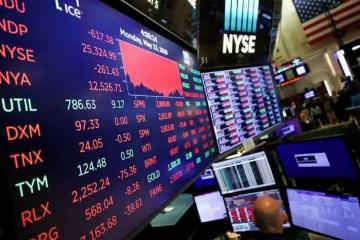The escalating technological competition and military tensions between China and the United States have taken on many forms since they began in 2016. Among these various fronts—including cultural clashes and information warfare—finance has emerged as the United States' most formidable weaponMeanwhile, the financial sector in China appears to be one of its weakest linksIt seems to be primarily composed of individuals closely aligned with Wall Street, serving as apprentices to its titans, and often adhering closely to the dictates of the U.Sfinancial systemUnfortunately, a pervasive sense of defeatism seems to exist among Chinese financial analysts, almost like an unwillingness to recognize the fierce competition unfolding in capital marketsDespite facing a brutal decade of tech rivalry, many maintain that the financial sector has remained largely unaffected, falsely claiming that America has yet to wage a full-scale financial war against China using its most powerful weapon
Advertisements
This mindset, where professionals essentially crawl on the ground in deference to their American peers, is fundamentally why China has been losing so badly in this financial struggle.
Moreover, let us delve into the recent discussions surrounding interest rates and what it means for the broader economyWhen Federal Reserve Chairman Jerome Powell speaks, he often emphasizes data-driven decisionsThe underlying narrative supported by current data is that America’s economy is thrivingEven when faced with labor statistics affected by natural disasters, such as hurricanes disrupting employment figures, the prevailing sentiment suggests a strong American consumer baseLeading up to FOMC meetings, these robust indicators are expected to contribute to the narrative of an economy that is in good shapeHowever, the abrupt shift in the Federal Reserve’s actions—from an anticipated 25 basis point increase to a steeper 50 basis point hike—has left many puzzled
Advertisements
Why such a significant change in strategy, and how can this be reconciled with the optimistic data? This is a question that Powell struggles to answer.
The dynamics surrounding the notion of a "dollar tide" have changedHistorically, the U.Shas benefited from economic recovery phases that lead to financial 'harvests.' However, with China no longer as compliant in this process and with its allies no longer eager to play along, the situation has turned awkwardIt’s as if the U.Seconomy is facing a dead whale—its delayed interest rate cuts are likely to cause disruptive fallout that will grow increasingly severe over timeThe longer rates remain high without cuts, the more significant the eventual drop will be and the more fragmented the results will become, complicating any sound recovery.
Let’s explore what it means when many say Powell’s approach to the Fed's recent rate cut is akin to “opening the floodgates.” The reduction in rates exceeded most expectations, demonstrating a substantial shift in monetary policy
Advertisements
The concept of preventative rate cuts also deserves attentionWhile a single piece of data may not definitively signal a recession, it can serve as a protective measureFor instance, if one senses the onset of a cold, one might choose to bolster their immune defenses by drinking warm liquids or taking herbal remedies before the ailment fully manifestsThe Fed's decisions often seem sluggish; perhaps July 25 and September 25 should have been the optimal times for a rate cutThus, the 50 basis point reduction, while initially appearing concerning, could have been anticipated amid broader market dynamics that include competing strategies.
Moreover, in terms of market reaction, if the Fed were to cut rates by 25 basis points and later economic data disappoint, market expectations would likely prompt further reductionsConversely, a cut of 50 basis points accompanied by hawkish rhetoric about the strength of the economy narrows the Fed's options
- Factors Influencing Energy Futures Market
- Trends in Financial Technology Development
- Trends in Capital Flows in Emerging Markets
- Meeting the Needs of Foreign Enterprises
- Applications of Supply Chain Finance
Should any employment data come in poorly—even a significant revision of labor statistics—that might lead traders to prematurely conclude that a recession has already begunThe considerable difference in managing expectations in this context is crucialPowell’s seemingly habitual approach is certainly indicative of the ongoing challenges he faces.
In previous analyses regarding U.STreasury bonds, I noted how market expectations had once priced in nearly 125 basis points' worth of rate adjustments before year’s end—this proved to be overly optimisticAs it stands, the Fed faces two choices: either a 25 basis point cut with dovish implications or a 50 basis point cut with hawkish reassurancesData suggests that the 25 basis points option is more consistent with the economic outlook, yet either choice will ultimately elevate long-term ratesAdditionally, former President Trump has started to suggest that the Fed is either politically motivated or manipulating economic data, adding another layer of controversy to the upcoming FOMC meeting.
At this juncture, the economic implications of these decisions are stark

The United States is currently burdened with an astonishing $35 trillion in debt while grappling with the immense global pressure of de-dollarizationDespite this, the Fed continues to impose strict interest rates, maintaining them at 5.5%. In stark contrast, China is navigating through a sluggish real estate market and a declining stock market while cautiously implementing monetary policy that prioritizes a slow and measured approach to liquidity provisionThis pronounced tension between the two nations, where one is tightening while the other is slowly loosening, represents a prolonged battle of enduranceA critical pivot point will occur if the U.SFederal Reserve signals a prospective shift towards decreasing rates, as this would likely unleash a wave of capital outflows from the U.Sinto foreign markets, especially providing China with the much-needed maneuverability in its monetary policy